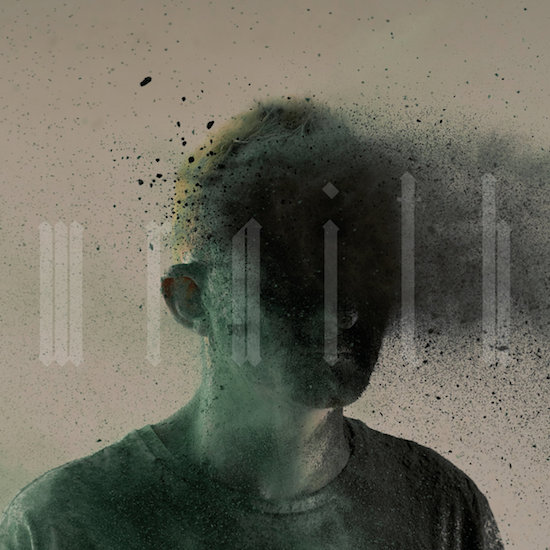The fifth album from genre-undermining outfit Teeth of the Sea is the latest in a progression, from the multi-layered kosmic grooves and flourishes of their 2009 debut Orphaned By The Ocean to the techno-influenced Master and the crisp, filmic beats of Highly Deadly Black Tarantula. Wraith takes their soundtrack tendencies to a new place where the synths are even more sonorous, the brass extra melancholy, the beats exceptionally crunchy and the scale epic and wild. Since their last album, the band has slimmed to a trio – Sam Barton, Mike Bourne and Jimmy Martin – but the sound is, if anything, more surprising and more accomplished.
Wraith seems to reflect on cultural turbulence and change, with music that mixes elegy with elements of disaster movie and failed futures. Yet as well as chaos there is reflection, stillness and redemption. Teeth of the Sea are now almost veterans of a UK alternative music scene that, over the last couple of years, has delivered some exceptional responses to increasingly disturbed and disturbing times. Albums such as Gazelle Twin’s Pastoral and Gnod’s Just Say No to the Right Wing Capitalist Fascist Industrial Death Machine have set the standards for engaged music. Teeth of the Sea are far from an overtly political band, but how do you retain a sense of purpose without relating your music to your times. How to do this with music that’s largely instrumental? Wraith takes on the challenge with tracks that explore their concerns through titles and illustrative qualities, as soundtracks to events we cannot see, but lurk on the edges of our fears. The vivid, evocative qualities to Teeth Of The Sea’s music makes space for the mind to roam.
For Wraith is not easily read. Rather than delivering the dark and punishing listen you might expect for a record that reflects these times, its strength is in unexpected swerves and a nuanced sonic palette. There are stark, unmediated sounds sure, but also beautifully conjured worlds and and rousing, uplifting themes.
The opening track, ‘I’d Rather, Jack’, is definitely not what The Reynolds Girls were anticipating when they demanded a rethink of radio playlist policy. Its machine gun beats rattle over stuttering, cut-up vocals, a wailing brass line plays a melody from the mid-70s radio sci-fi serial of your dreams, and a dirty guitar grinds beneath. It is a unapologetic banger of a tune, which reveals more of itself with each listen, morphing from Factory Floor to Jeff Wayne and back again. It is quite the opening statement for an opening track and, once it is over, the rest of the album builds up slowly, as though starting from scratch is the only way to explain where this all comes from.
Always in the foreground in the first half of Wraith is an insistent drum machine, keeping time and watch. On ‘Burning of the Shiel’ bass drum sounds like the tread of an approaching army, yet ‘Fortean Steed’ provides an idyllic interlude. It has unnamed female vocals but no words, only sounds, reminiscent of Linda Perhacs or, as the band suggests, Judee Sill. This is the album’s still centre, where the rhythms fade away and another world seems possible, free from the grind of a world in confusion.
At this point things take a turn for the unexpected as, on VISITOR, the dying civilisations suddenly give way to a breezy, skipping electro beat with a new age feel. On this centrepiece of Wraith, the band hold back and back until they can no longer resist, before the full Teeth of the Sea complement of guitar, synth and brass opens up around the halfway mark, with guest percussionist Valentina Magaletti making her presence felt. It’s Teeth Of The Sea’s most cinematic moment to date, which is certainly saying something, and nod towards the sci-fi that so clearly inspires them.
The second half of Wraith sees the arrival of the title spectres, but they seem benign. ‘Her Wraith’ is a track Jon Hassell would be pleased with, big drums clattering with effects and excitable strings. The final track, ‘Gladiators Ready’ is a fighting track, with a giant, surging riff at its core. As throughout the album, there’s a strong sense of unease but also defiance, and it makes for a memorable way to play out the credits.
Teeth of the Sea have excelled themselves on this highly rewarding record. Their collaborators – Chlöe Herington and Katharine Gifford as well as Magaletti, and the production skills of Erol Alkan – has given them a new polish, a sophistication, even. While there has was never any doubting their psychedelic influences and their way with a groove, Wraith offers something more. Full of variety and unpredictability, like the best science fiction it maps out a dreamworld of our times, a tonic against the deathly thoughts of the small hours.



